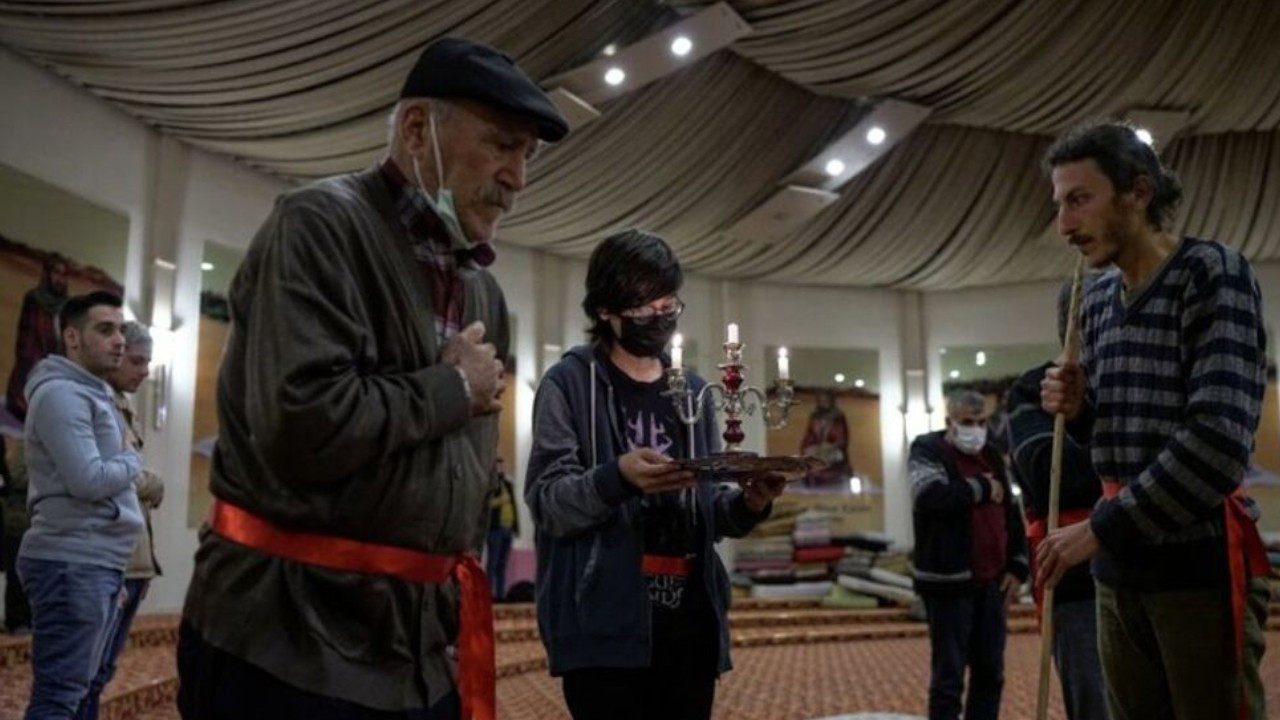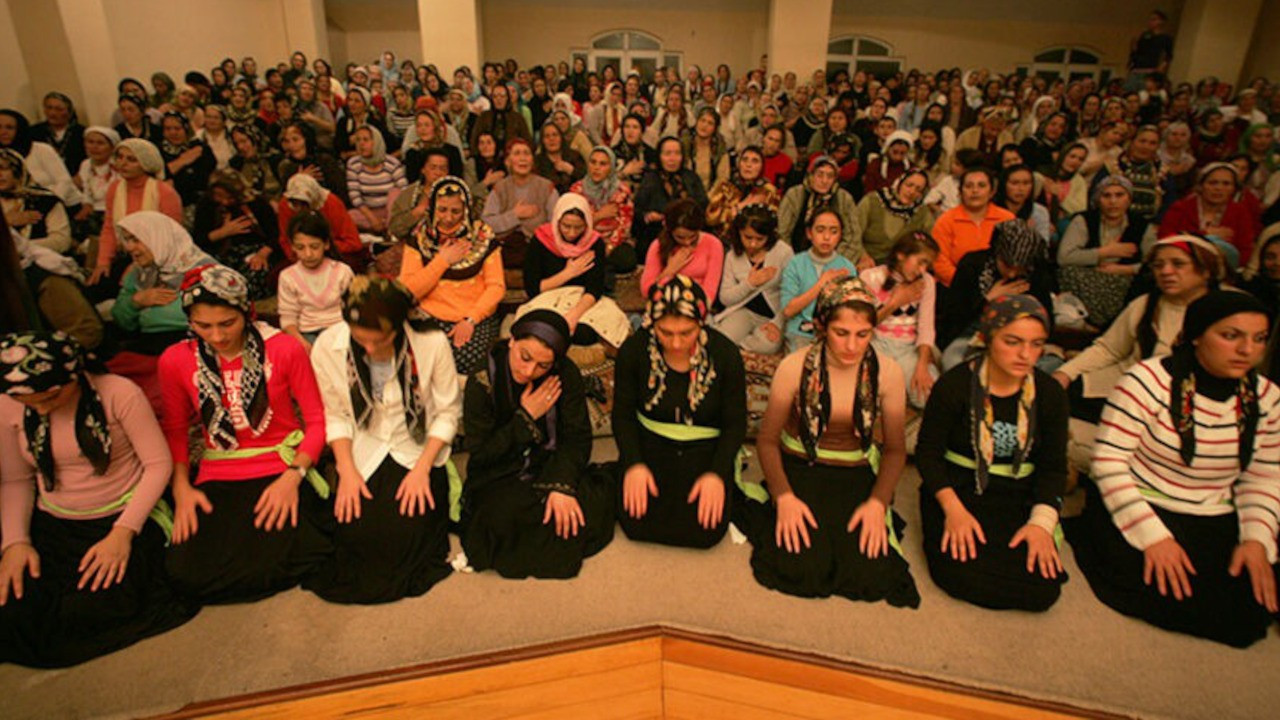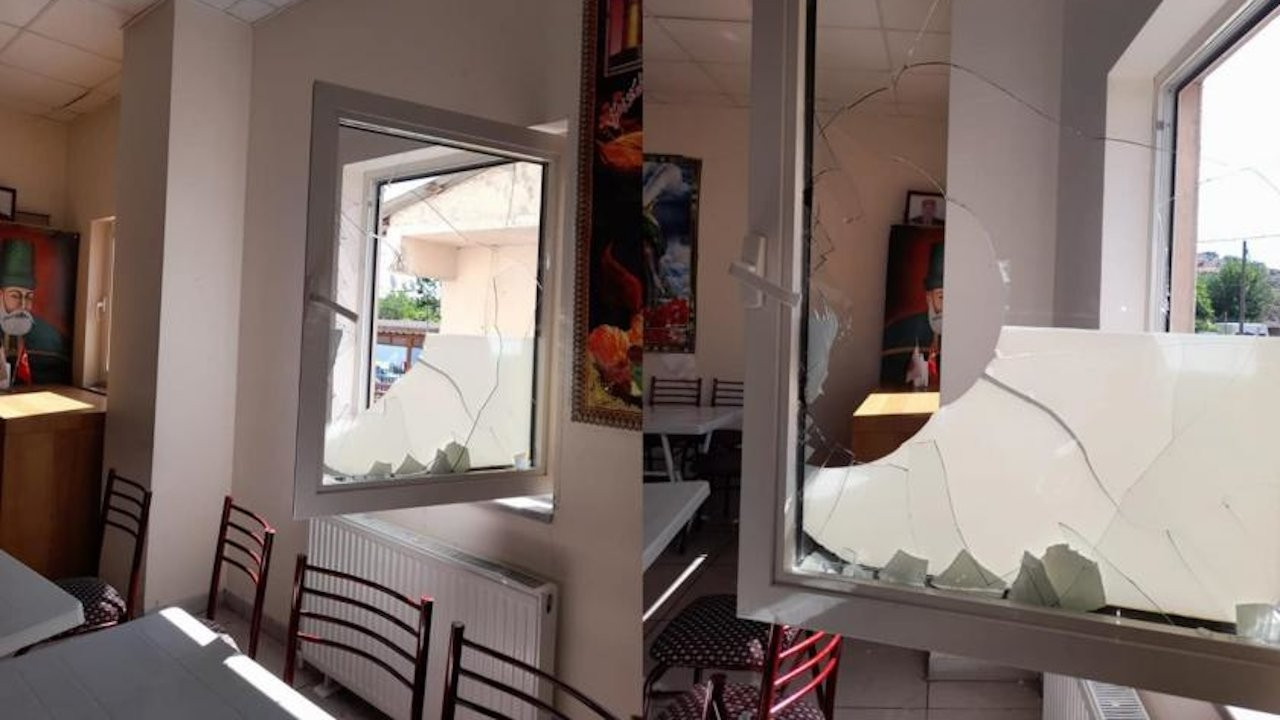AKP municipality's plan to build mosque next to cemevi dangerous, opposition warns
The AKP-led municipality of Istanbul's Sancaktepe has paved the way for the construction of a mosque next to a cemevi in the district. The Alevis and the opposition have warned that the municipality's move is a step in centuries of trying to quash and assimilate Alevi populations in Turkey.
Duvar English
Main opposition Republican People’s Party (CHP) politicians and Alevi organizations in the district of Sancaktepe in Istanbul are warning that the Justice and Development Party (AKP)-led municipality's plan to build a mosque next to an Alevi house of worship (cemevi) is dangerous and reminiscent of Fetullah Gülen-era policies, daily Birgün reported on Dec. 2.
“We vote against it because the land allocated for the construction of a cemevi is next to the land on which a mosque project is planned. This is a FETÖ project,” CHP members of the city council said in their rejection of the proposal, using the acronym for the Gülen movement.
“It can also create problems for the worshiping congregations when two worship areas will be built side by side.”
CHP politicians emphasized that the plan was reminiscent of the cemevi-mosque projects initiated by U.S.-based Islamic preacher Fethullah Gülen and his followers when they were central to the Turkish state. These projects, they say, were meant to stifle Alevi worship. Alevism is reminiscent of Shi’ism but is in reality its own heterodox sect of Islam distinguished by unique forms of worship performed in Cemevis.
When a joint mosque and cemevi were built in the Mamak district of Ankara, Chairman of Pir Sultan Abdal Cultural Association (PSAKD) Gani Kaplan said, it lead to violence and struggles between the Alevi and Muslim communities in the area. After many citizens were maimed and injured in clashes, he said, they had to shelve the project. Now, they are trying to do the same thing in Sancaktepe.
“Let everyone worship in their own area,” Kaplan said. “Let them not resurrect a conflict like the one in Mamak. What the AKP municipality is doing is a very dangerous thing.”
The planned project by the AKP municipality of Sancaktepe would grant 675 square meters of land in the Hilal neighborhood to the Birlik Cemevi Education Culture and Aid Association, an Alevi organization, to build a cemevi. However, directly next to this plot, the municipality granted 5,230 for the construction of a mosque, referred to in plans as a “religious facility area.”
In a statement made to Birgün, the CHP Sancaktepe Parliamentary group said not only that this was a "FETÖ-like project," but that it was unequal in its treatment of Alevism and Sunni Islam.
“The other grounds for our objection is the allocation of 675 square meters to the cemevi, while 5,320 square meters were reserved for the mosque,” they said. “Given the fact that the Head of the Cemevi has requested 1,800 square meters for over one and a half years, we do not find it right that they were granted an area of just 675 meters.”
The cultural association is currently housed in a building they rent and appealed to the municipality to secure a more permanent place of worship.
With this allocation, however, Alevi leaders feel, they will be unable to worship. In particular, Kaplan is concerned that they will be unable to play the instruments, such as the saz, central to their ceremony.
“How will vocal worship with saz be possible in the cemevi when there is a mosque next door? They will come over and say 'stop the music,’” Kaplan said.
He said this is simply another step in centuries of trying to quash and assimilate Alevi populations in Turkey.
“Was there no other vacant land in Sancaktepe?” Kaplan asked. “For centuries, they have been trying to assimilate Alevis. The forced construction of mosques in Alevi villages, the occupation of Alevi lodges, and playing the call to prayer over loudspeakers in Alevi villages that do not have mosques are just a few examples of how they have done this.”

 Erdoğan faces uphill bid to woo Turkey's large Alevi minorityHuman Rights
Erdoğan faces uphill bid to woo Turkey's large Alevi minorityHuman Rights Alevis want legal status from the AKP, not bags of cementDomestic
Alevis want legal status from the AKP, not bags of cementDomestic Two detained for attacking cemevi in IstanbulHuman Rights
Two detained for attacking cemevi in IstanbulHuman Rights